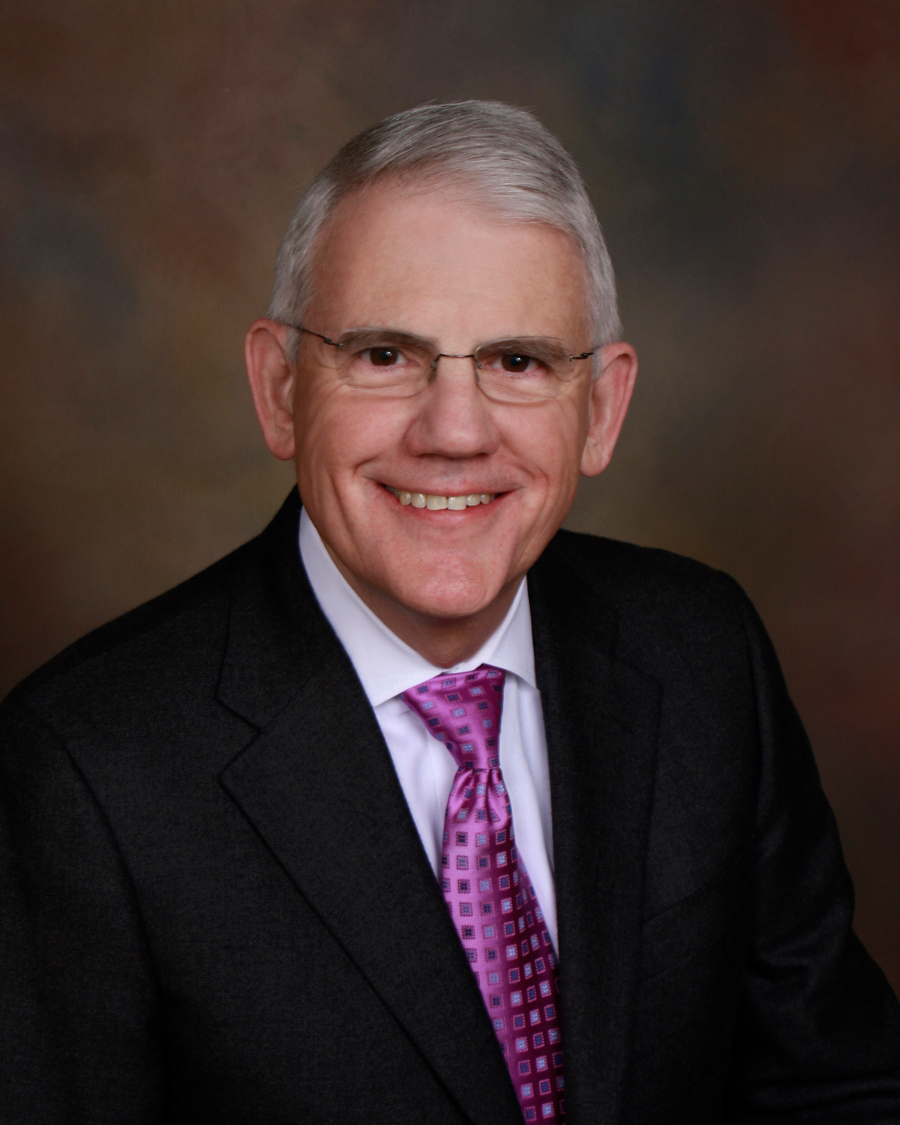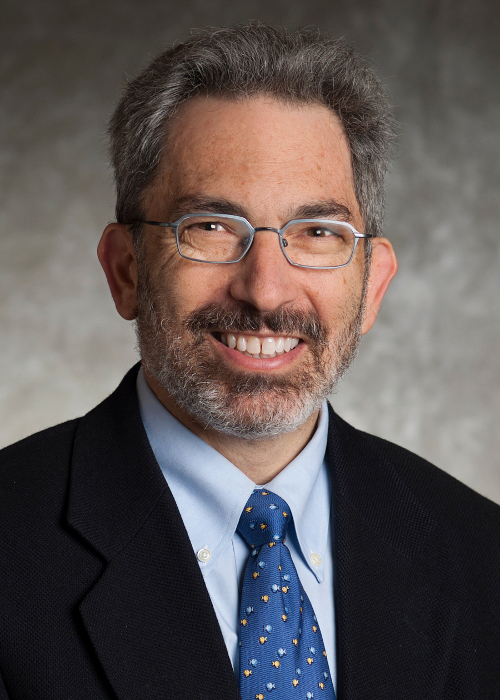Four gastroenterologists discuss trends in the demand for colonoscopy and where the field is headed in the future.
Question: Do you expect the demand for colonoscopy to grow or decline over the next five years? What are the biggest factors impacting colonoscopy volume?

Thomas M. Deas Jr., MD, Past President, American Society for Gastrointestinal Endoscopy, Gastroenterology Associates of North Texas, Fort Worth: I believe that demand for colonoscopy is going to grow, for a number of reasons. The main reason is that colorectal cancer screening is becoming more acceptable to patients, and we are seeing the number of patients who are selecting colonoscopy increase.
The aging population is another big factor. The number of "baby boomers" entering Medicare age is very large, and in addition to screening there will more colonoscopies performed for diagnostic reasons.
Patients are becoming better informed, and are aware of the fact that screening colonoscopies reduce colon cancer rates. We are moving toward broader healthcare coverage. A large population of people who were not considering colonoscopy, now have health insurance and do not have to pay out-of-pocket for colonoscopies as the healthcare reform law has required full coverage for preventative care.
 William R. Stern, MD, member of American College of Gastroenterology's Practice Management Committee, Associates in Gastroenterology, Rockville, Md.: I think they'll probably grow. Because of the Affordable Care Act, more people will have insurance and screening colonoscopies are mandated as a preventive screening measure. Also, GI societies are trying to make people more aware and increase publicity.
William R. Stern, MD, member of American College of Gastroenterology's Practice Management Committee, Associates in Gastroenterology, Rockville, Md.: I think they'll probably grow. Because of the Affordable Care Act, more people will have insurance and screening colonoscopies are mandated as a preventive screening measure. Also, GI societies are trying to make people more aware and increase publicity.
Lawrence B. Cohen, MD, Clinical Professor, Department of Medicine, The Icahn School of Medicine at Mount Sinai, New York: I believe that demand for optical colonoscopy will continue to increase during the next five years. This belief is based upon evidence that supports the efficacy of colonoscopy in the prevention of colorectal cancer. No other modality currently in use for colorectal cancer screening, including fecal immunochemical testing, CT colonography and fecal DNA has been demonstrated in randomized trials to be as effective as colonoscopy in reducing both the frequency and the mortality rate of colorectal cancer.
Notwithstanding the above, however, I believe that optical colonoscopy will be challenged by other screening modalities when more data examining the cost effectiveness of various testing strategies are available. For example, a large [Veterans Affairs] cooperative study is currently under way comparing colonoscopy with FIT. While the results of this study will not be available for many years, there are some individuals who feel that FIT may come out on top when both effectiveness and cost are factored into the equation.
other screening modalities when more data examining the cost effectiveness of various testing strategies are available. For example, a large [Veterans Affairs] cooperative study is currently under way comparing colonoscopy with FIT. While the results of this study will not be available for many years, there are some individuals who feel that FIT may come out on top when both effectiveness and cost are factored into the equation.
Approximately 60 percent of eligible Americans have now undergone some form of screening for colorectal cancer. This number is up at least 10 percent in the last decade, due to increased efforts to educate the public about the importance of colorectal cancer screening and improved methods of sedation that have increased patient compliance with screening recommendations.
Q: Do you think that the GI physician workforce will also increase?
Colleen M. Schmitt, MD, President-Elect of the American Society for Gastrointestinal Endoscopy, Galen Medical Group, Chattanooga, Tenn.: A number of factors contribute to the increased demand for colonoscopies, such as the aging and growth of our population. However, it has been projected that there will be a shortfall of GI physicians by 2020.
increased demand for colonoscopies, such as the aging and growth of our population. However, it has been projected that there will be a shortfall of GI physicians by 2020.
Q: How will you adapt your practice as colonoscopy volume shifts? Are there any preemptive measures you are planning to take?
Dr. Deas: We have added new physicians to our practice over the past few years. This is part of the adaptation. The ambulatory surgery center is co-located with our office so that improves our time efficiency and we also have nurse practitioners to help with seeing patients in the office, scheduling and preparing patients for colonoscopy.
Some practices provide open access colonoscopy, which means that the patient is not evaluated in the GI endoscopist's office before the colonoscopy. Patients are referred directly from their primary care provider for the procedure only, eliminating the office visit time.
Q: Where do you see the biggest opportunities for gastroenterologists focused on colonoscopy?
Dr. Deas: The most important thing we can do is work to improve the quality of the colonoscopy. That includes spending more time examining the colon and improving bowel preparation, to improve the quality of the exam. These are two main issues that the endoscopists can focus on to make the colonoscopy more effective at reducing cancer rates and interval cancers.
The ASGE Institute for Training and Technology also has a lot of hands-on training options for physicians to improve their skills and to learn more advanced techniques in polyp removal as well as other endoscopic techniques.
Dr. Stern: Just to streamline the care, GI physicians should try and get block time at surgery centers so that doing the procedure becomes more efficient. We are also recognizing genetic or familial reasons that might lead to colon cancer and as we are getting better about that, we can screen patients at a younger age.
Dr. Schmitt: Within GI industry, we understand the importance of quality measures such as the adenoma detection rate. We need to make sure that all quality measures translate into value for our patients and make sure that our patients and referring physicians understand that value. When they look for an endoscopist, they should ask about those quality measures.
The other area where we have opportunity is augmenting our basic skill set. We have GI physicians who want to expand their skills and the ASGE has an assessment-based certificate program to help endoscopists do that.
Q: What can GI physicians do to ensure stability in the face of the changes that healthcare reform will bring?
Dr. Cohen: Gastroenterologists have become overly dependent upon colonoscopy for a disproportionate fraction of their revenue. We need to become more diversified in our practices so that we are not as vulnerable to dramatic reductions in revenue if demand for colonoscopy is reduced by 50 percent or more. Other areas where there is significant room for growth by gastroenterologists include nutrition and bariatric services, women's GI health and GI oncology.
Furthermore, gastroenterologists need to focus on the three core elements that are vital to any health service: quality, cost and access. We need to improve the overall quality of colonoscopic services and to demonstrate that quality through performance measurement. In addition to assessing the well-recognized measures of quality such as adenoma detection and cecal intubation rate, appropriate recommendations for screening and surveillance must be captured in order to reduce overutilization.
Cost constraints will certainly be felt as payers develop new models of payment to reign in the costs of healthcare. Practices that provide endoscopic services cost-effectively will be the most successful in the next few years. Cost savings within endoscopy can be achieved through the increased utilization of mid-level providers for pre-and post procedure patient management, replacement of MD anesthetists with certified registered nurse anesthetists for the provision of sedation or reverting to conventional sedation using an opioid and midazolam in order to eliminate the cost of an anesthesia specialist altogether.
Drs. Richard Fedorak, Haili Wang Develop Urine Test for Detection of Colonic Polyps
Dr. M. Babitha Reddy to Practice at New Mercy Family Medicine Clinic
Question: Do you expect the demand for colonoscopy to grow or decline over the next five years? What are the biggest factors impacting colonoscopy volume?

Thomas M. Deas Jr., MD, Past President, American Society for Gastrointestinal Endoscopy, Gastroenterology Associates of North Texas, Fort Worth: I believe that demand for colonoscopy is going to grow, for a number of reasons. The main reason is that colorectal cancer screening is becoming more acceptable to patients, and we are seeing the number of patients who are selecting colonoscopy increase.
The aging population is another big factor. The number of "baby boomers" entering Medicare age is very large, and in addition to screening there will more colonoscopies performed for diagnostic reasons.
Patients are becoming better informed, and are aware of the fact that screening colonoscopies reduce colon cancer rates. We are moving toward broader healthcare coverage. A large population of people who were not considering colonoscopy, now have health insurance and do not have to pay out-of-pocket for colonoscopies as the healthcare reform law has required full coverage for preventative care.
 William R. Stern, MD, member of American College of Gastroenterology's Practice Management Committee, Associates in Gastroenterology, Rockville, Md.: I think they'll probably grow. Because of the Affordable Care Act, more people will have insurance and screening colonoscopies are mandated as a preventive screening measure. Also, GI societies are trying to make people more aware and increase publicity.
William R. Stern, MD, member of American College of Gastroenterology's Practice Management Committee, Associates in Gastroenterology, Rockville, Md.: I think they'll probably grow. Because of the Affordable Care Act, more people will have insurance and screening colonoscopies are mandated as a preventive screening measure. Also, GI societies are trying to make people more aware and increase publicity. Lawrence B. Cohen, MD, Clinical Professor, Department of Medicine, The Icahn School of Medicine at Mount Sinai, New York: I believe that demand for optical colonoscopy will continue to increase during the next five years. This belief is based upon evidence that supports the efficacy of colonoscopy in the prevention of colorectal cancer. No other modality currently in use for colorectal cancer screening, including fecal immunochemical testing, CT colonography and fecal DNA has been demonstrated in randomized trials to be as effective as colonoscopy in reducing both the frequency and the mortality rate of colorectal cancer.
Notwithstanding the above, however, I believe that optical colonoscopy will be challenged by
 other screening modalities when more data examining the cost effectiveness of various testing strategies are available. For example, a large [Veterans Affairs] cooperative study is currently under way comparing colonoscopy with FIT. While the results of this study will not be available for many years, there are some individuals who feel that FIT may come out on top when both effectiveness and cost are factored into the equation.
other screening modalities when more data examining the cost effectiveness of various testing strategies are available. For example, a large [Veterans Affairs] cooperative study is currently under way comparing colonoscopy with FIT. While the results of this study will not be available for many years, there are some individuals who feel that FIT may come out on top when both effectiveness and cost are factored into the equation. Approximately 60 percent of eligible Americans have now undergone some form of screening for colorectal cancer. This number is up at least 10 percent in the last decade, due to increased efforts to educate the public about the importance of colorectal cancer screening and improved methods of sedation that have increased patient compliance with screening recommendations.
Q: Do you think that the GI physician workforce will also increase?
Colleen M. Schmitt, MD, President-Elect of the American Society for Gastrointestinal Endoscopy, Galen Medical Group, Chattanooga, Tenn.: A number of factors contribute to the
 increased demand for colonoscopies, such as the aging and growth of our population. However, it has been projected that there will be a shortfall of GI physicians by 2020.
increased demand for colonoscopies, such as the aging and growth of our population. However, it has been projected that there will be a shortfall of GI physicians by 2020. Q: How will you adapt your practice as colonoscopy volume shifts? Are there any preemptive measures you are planning to take?
Dr. Deas: We have added new physicians to our practice over the past few years. This is part of the adaptation. The ambulatory surgery center is co-located with our office so that improves our time efficiency and we also have nurse practitioners to help with seeing patients in the office, scheduling and preparing patients for colonoscopy.
Some practices provide open access colonoscopy, which means that the patient is not evaluated in the GI endoscopist's office before the colonoscopy. Patients are referred directly from their primary care provider for the procedure only, eliminating the office visit time.
Q: Where do you see the biggest opportunities for gastroenterologists focused on colonoscopy?
Dr. Deas: The most important thing we can do is work to improve the quality of the colonoscopy. That includes spending more time examining the colon and improving bowel preparation, to improve the quality of the exam. These are two main issues that the endoscopists can focus on to make the colonoscopy more effective at reducing cancer rates and interval cancers.
The ASGE Institute for Training and Technology also has a lot of hands-on training options for physicians to improve their skills and to learn more advanced techniques in polyp removal as well as other endoscopic techniques.
Dr. Stern: Just to streamline the care, GI physicians should try and get block time at surgery centers so that doing the procedure becomes more efficient. We are also recognizing genetic or familial reasons that might lead to colon cancer and as we are getting better about that, we can screen patients at a younger age.
Dr. Schmitt: Within GI industry, we understand the importance of quality measures such as the adenoma detection rate. We need to make sure that all quality measures translate into value for our patients and make sure that our patients and referring physicians understand that value. When they look for an endoscopist, they should ask about those quality measures.
The other area where we have opportunity is augmenting our basic skill set. We have GI physicians who want to expand their skills and the ASGE has an assessment-based certificate program to help endoscopists do that.
Q: What can GI physicians do to ensure stability in the face of the changes that healthcare reform will bring?
Dr. Cohen: Gastroenterologists have become overly dependent upon colonoscopy for a disproportionate fraction of their revenue. We need to become more diversified in our practices so that we are not as vulnerable to dramatic reductions in revenue if demand for colonoscopy is reduced by 50 percent or more. Other areas where there is significant room for growth by gastroenterologists include nutrition and bariatric services, women's GI health and GI oncology.
Furthermore, gastroenterologists need to focus on the three core elements that are vital to any health service: quality, cost and access. We need to improve the overall quality of colonoscopic services and to demonstrate that quality through performance measurement. In addition to assessing the well-recognized measures of quality such as adenoma detection and cecal intubation rate, appropriate recommendations for screening and surveillance must be captured in order to reduce overutilization.
Cost constraints will certainly be felt as payers develop new models of payment to reign in the costs of healthcare. Practices that provide endoscopic services cost-effectively will be the most successful in the next few years. Cost savings within endoscopy can be achieved through the increased utilization of mid-level providers for pre-and post procedure patient management, replacement of MD anesthetists with certified registered nurse anesthetists for the provision of sedation or reverting to conventional sedation using an opioid and midazolam in order to eliminate the cost of an anesthesia specialist altogether.
More Articles on Gastroenterologists:
Physician Leadership in EHR Implementation: Q&A With Gastroenterologist Dr. Patrick TakahashiDrs. Richard Fedorak, Haili Wang Develop Urine Test for Detection of Colonic Polyps
Dr. M. Babitha Reddy to Practice at New Mercy Family Medicine Clinic


